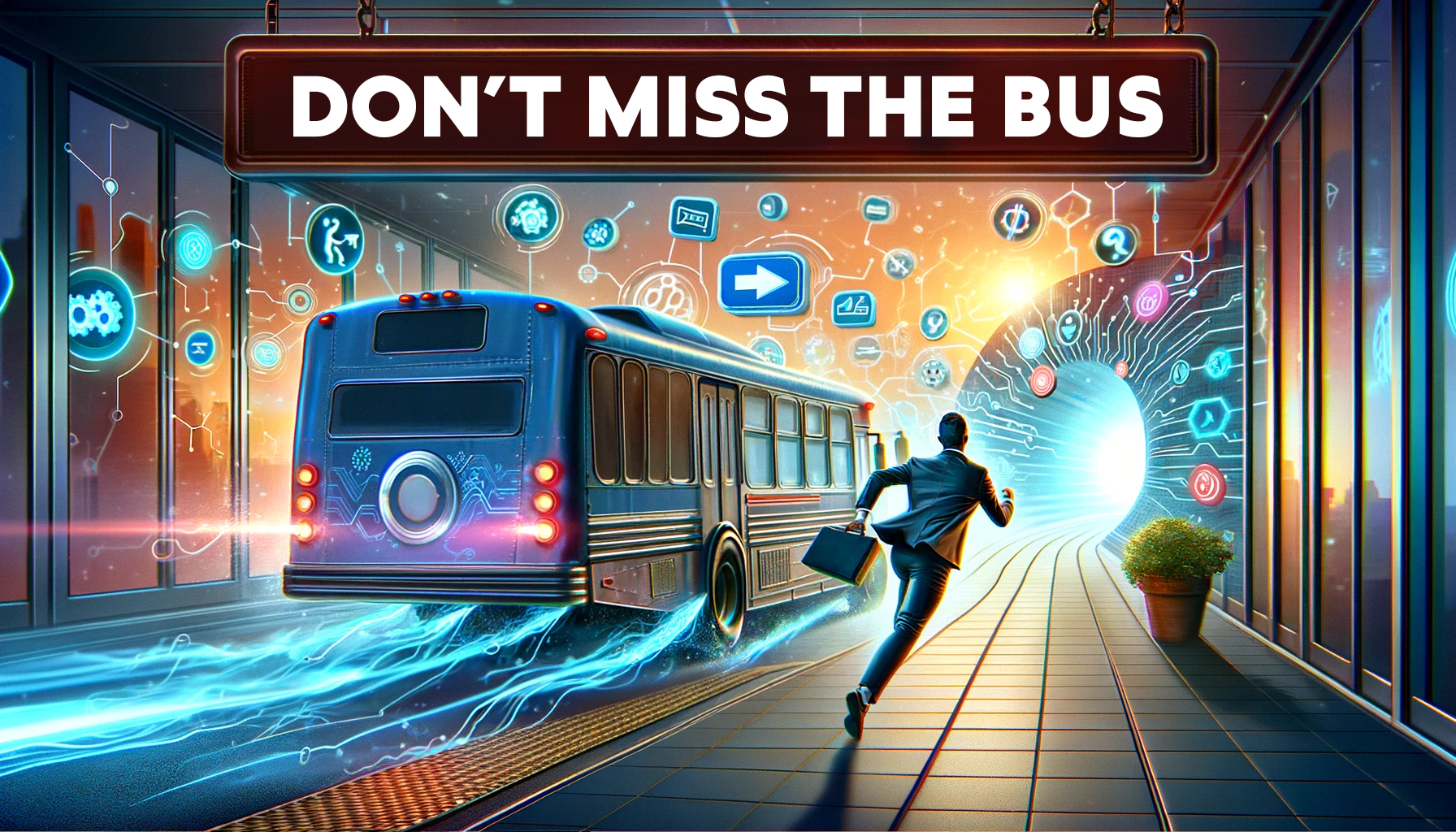Embracing AI in Marketing: Adapt or Be Left Behind
AI generated image of a man running after a futuristic bus.
In the rapidly evolving landscape of digital marketing, staying ahead of the curve is not just an advantage; it's a necessity. The rise of Artificial Intelligence (AI) tools in recent years has marked a transformative era for marketers worldwide. Those who adapt and embrace these technologies will thrive, while those who ignore them risk falling irretrievably behind. Let’s dive into how marketers can leverage AI to stay competitive and explore some of the most compelling AI tools shaping the industry today.
The AI Revolution in Marketing
AI is more than just a buzzword; it's revolutionizing how we understand consumer behavior, automate repetitive tasks, personalize customer experiences, and make data-driven decisions. By harnessing the power of AI, marketers can unlock insights and efficiencies that were previously unimaginable. The key to success lies in understanding which tools can best support your marketing objectives and learning how to integrate them into your strategy.
Top AI Tools for Marketers
Chatbots and Virtual Assistants: Tools like Drift and Intercom use AI to simulate human conversation, enabling businesses to engage with customers 24/7. These platforms can handle inquiries, guide users through the buying process, and even provide personalized recommendations, improving customer service and freeing up human resources for more complex tasks.
Content Creation and Curation: AI-powered platforms such as Jasper (formerly Jarvis) and Copy.ai assist in generating high-quality content, from blog posts to social media updates. These tools can help marketers overcome writer's block and maintain a consistent content strategy by providing suggestions based on trending topics and SEO best practices.
Email Marketing Optimization: Tools like Phrasee use AI to craft subject lines that increase open rates, while others, such as Persado, optimize email content to drive engagement and conversions. These technologies analyze vast amounts of data to understand what resonates with audiences, enabling marketers to tailor their messages more effectively.
Predictive Analytics: Platforms like Crayon and MarketMuse offer insights into market trends, competitor strategies, and content optimization opportunities. By predicting future consumer behavior, marketers can strategize more effectively, targeting the right audience with the right message at the right time.
Ad Targeting and Optimization: AI algorithms power platforms like Google Ads and Facebook Ads, helping marketers optimize their ad spend and target their ideal customers more accurately. These tools analyze user data to identify patterns and preferences, ensuring that ads are shown to those most likely to convert.
The Stakes of Stagnation
In the digital age, stagnation is the fastest route to obsolescence. Marketers who resist adopting AI technologies not only miss out on opportunities to enhance their strategies but also risk being overshadowed by competitors who are more willing to innovate. The ability to quickly adapt to new tools and technologies is becoming an indispensable skill in the marketer's toolkit.
Embracing Change for Future Success
The integration of AI in marketing is not a passing trend—it's the future of the industry. By embracing AI tools, marketers can gain deeper insights, enhance customer experiences, and achieve greater efficiency, all while staying ahead of the competition. The message is clear: adapt to the rapidly changing landscape or be left behind. As we look to the future, the choice for marketers is not whether to adopt AI, but how quickly and effectively they can do so to ensure their brand's growth and relevance in the years to come.


